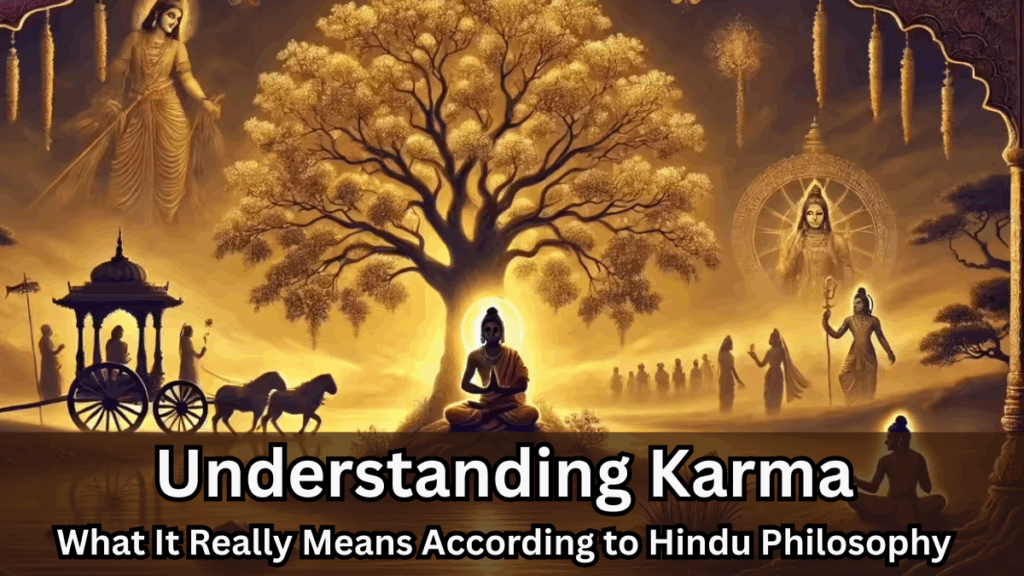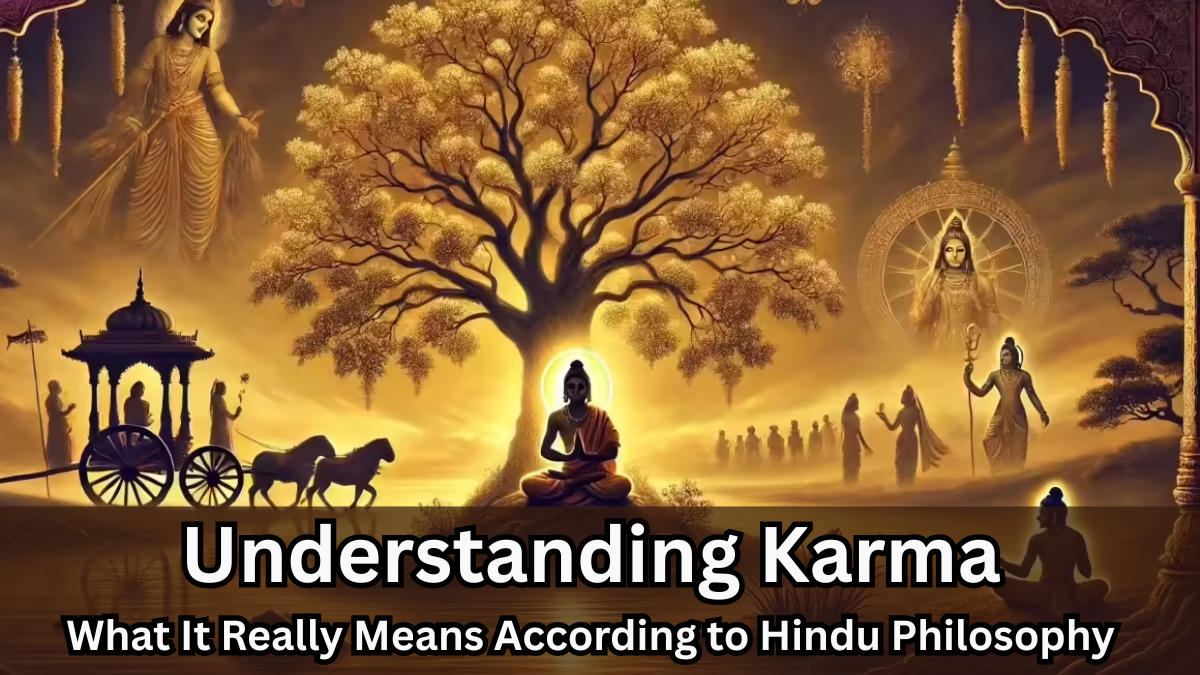Karma is a concept that has fascinated and guided millions for centuries. Rooted deeply in Hindu philosophy, it shapes the way people perceive actions, consequences, and the journey of life. But what exactly does karma mean, and how does it influence our spiritual and worldly experiences?

What Is Karma in Hinduism?
In simple terms, karma refers to the law of cause and effect. Every action—be it good or bad—creates a corresponding reaction, either in this life or future lives. This is the essence of the meaning of karma in Hinduism.
Key points to understand:
-
Karma is not just about punishment or reward; it’s about balance and spiritual justice.
-
It connects our present actions to future consequences, teaching responsibility and mindfulness.
-
Karma is central to Hindu beliefs on reincarnation and spiritual growth.
Karma Theory Explained
The karma theory explained in Hindu philosophy has several layers:
Types of Karma
| Type of Karma | Description |
|---|---|
| Sanchita Karma | Past accumulated karma from previous lives |
| Prarabdha Karma | Karma influencing current life experiences |
| Kriyamana Karma | Karma being generated through current actions |
| Agami Karma | Future karma created by present deeds |
This structured understanding helps us see how spiritual justice is maintained in the universe. It’s a reminder that our choices have consequences beyond immediate perception.
The Law of Karma and Daily Life
The law of karma is more than a philosophical idea—it’s a guide for ethical living. By understanding karma, individuals can:
-
Make conscious choices and avoid actions with negative consequences
-
Cultivate good deeds to generate positive outcomes in life
-
Develop a sense of empathy, knowing every action affects the cosmic balance
-
Improve personal growth and spiritual awareness
Common Misconceptions About Karma
Many people misunderstand karma as a simple reward-punishment system. In reality:
-
Karma is not instant; consequences may unfold over time or even in future lives
-
It is not fate or predestination; humans still have free will to create positive karma
-
Karma is personal, and no one else can take your consequences for you
Understanding these nuances allows for a balanced approach to spiritual justice and self-responsibility.
How to Apply the Meaning of Karma in Hinduism
Practical ways to live according to the karma theory explained include:
-
Mindful actions – Think before acting, especially when emotions run high
-
Selfless service – Helping others without expecting rewards enhances positive karma
-
Honesty and integrity – Maintaining truthfulness and ethical conduct in daily life
-
Reflection and meditation – Regular self-reflection helps understand the impact of one’s actions
FAQs About Karma
Q1: What is the meaning of karma in Hinduism?
A: Karma in Hinduism refers to the law of cause and effect, where every action—good or bad—has corresponding consequences, either in this life or future lives.
Q2: How does the law of karma work?
A: The law of karma ensures spiritual justice by linking actions to consequences. Positive deeds lead to positive outcomes, while negative deeds lead to challenges or obstacles.
Q3: Can karma be changed?
A: Yes. By practicing good actions, selfless service, and mindful living, one can generate positive karma and influence future experiences.
Q4: What is the difference between karma and destiny?
A: Karma is the result of personal actions and choices, while destiny refers to predetermined life events. Karma provides a flexible framework where one can influence outcomes through conscious deeds.
Click here to learn more
